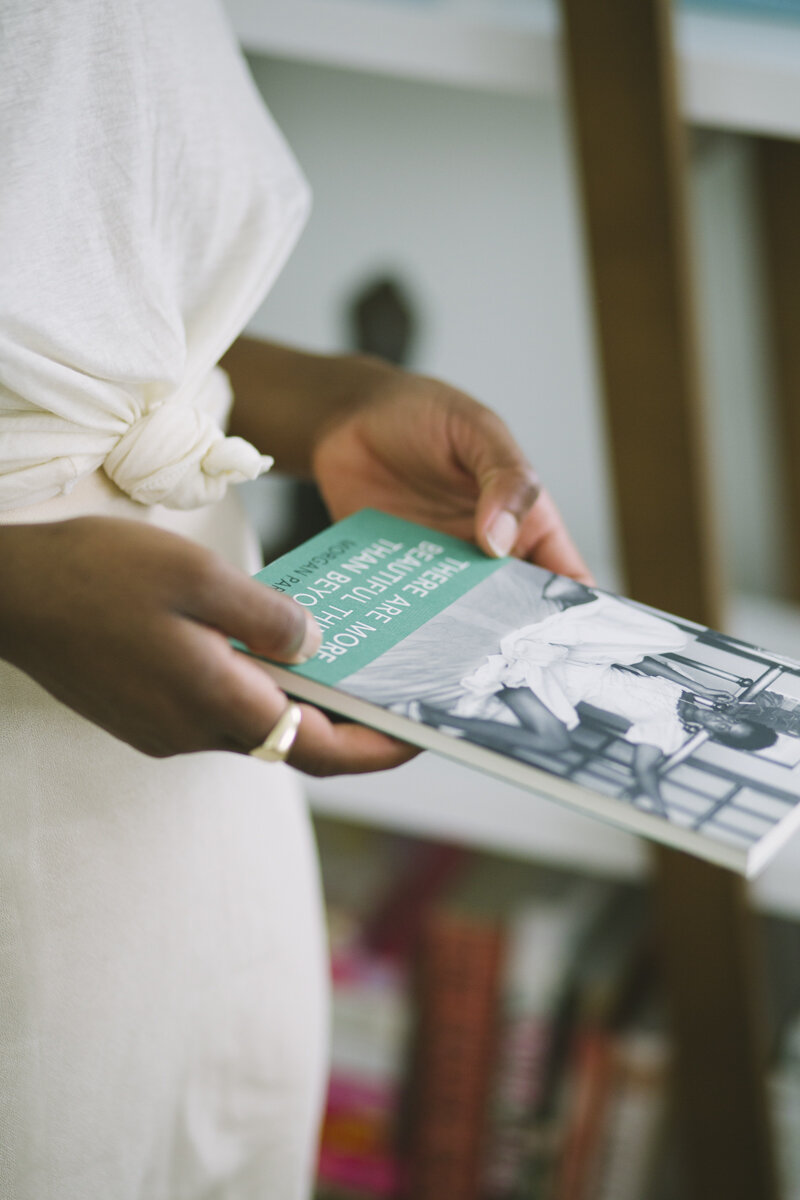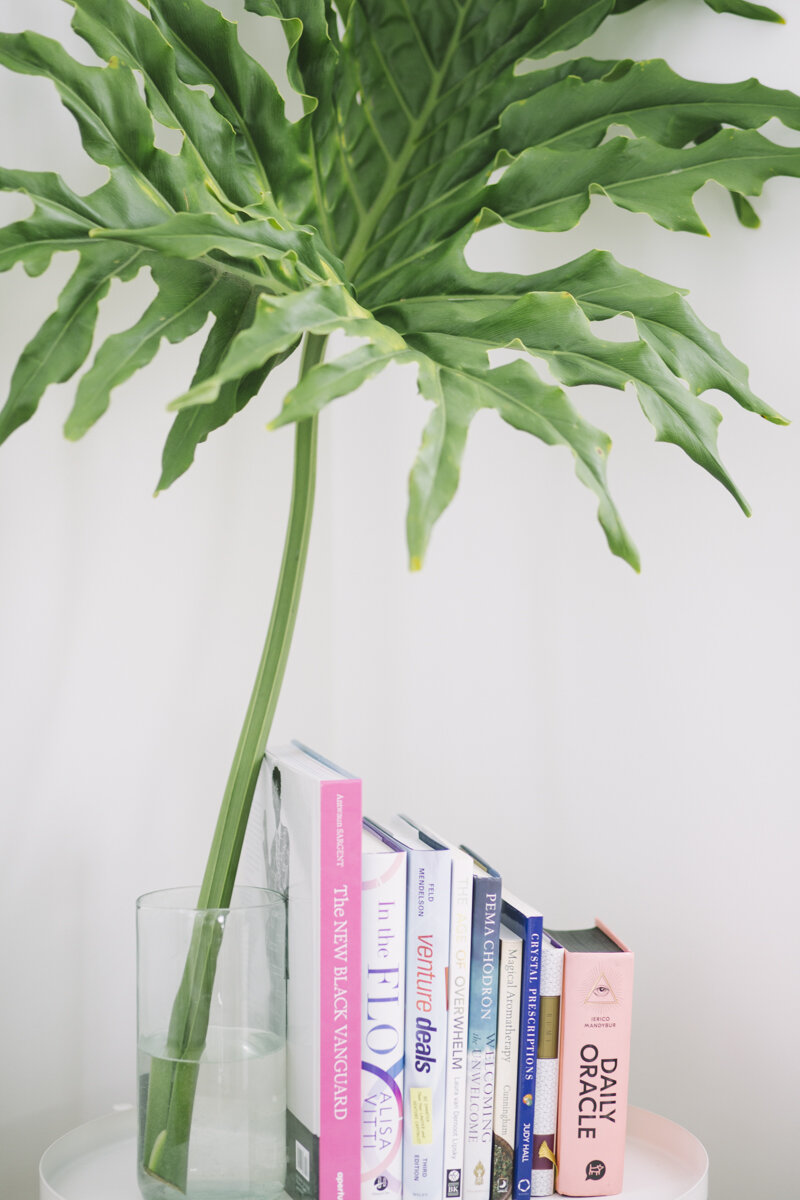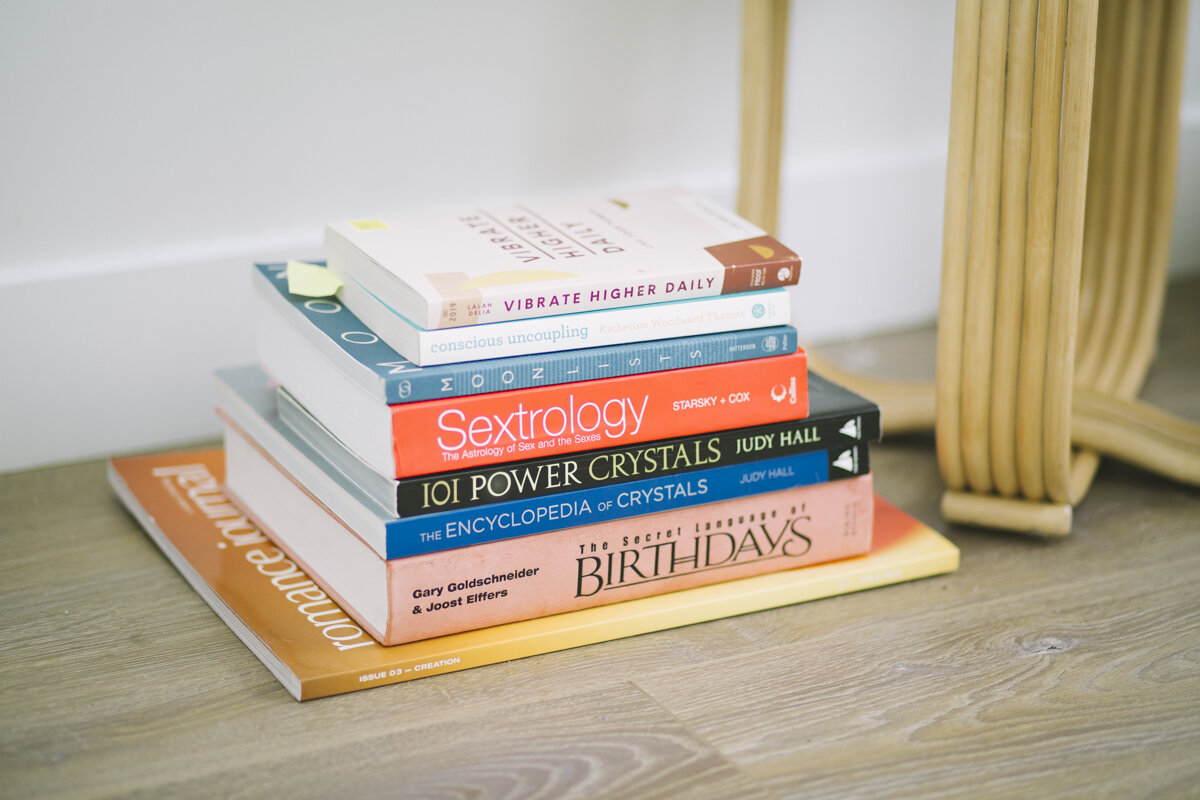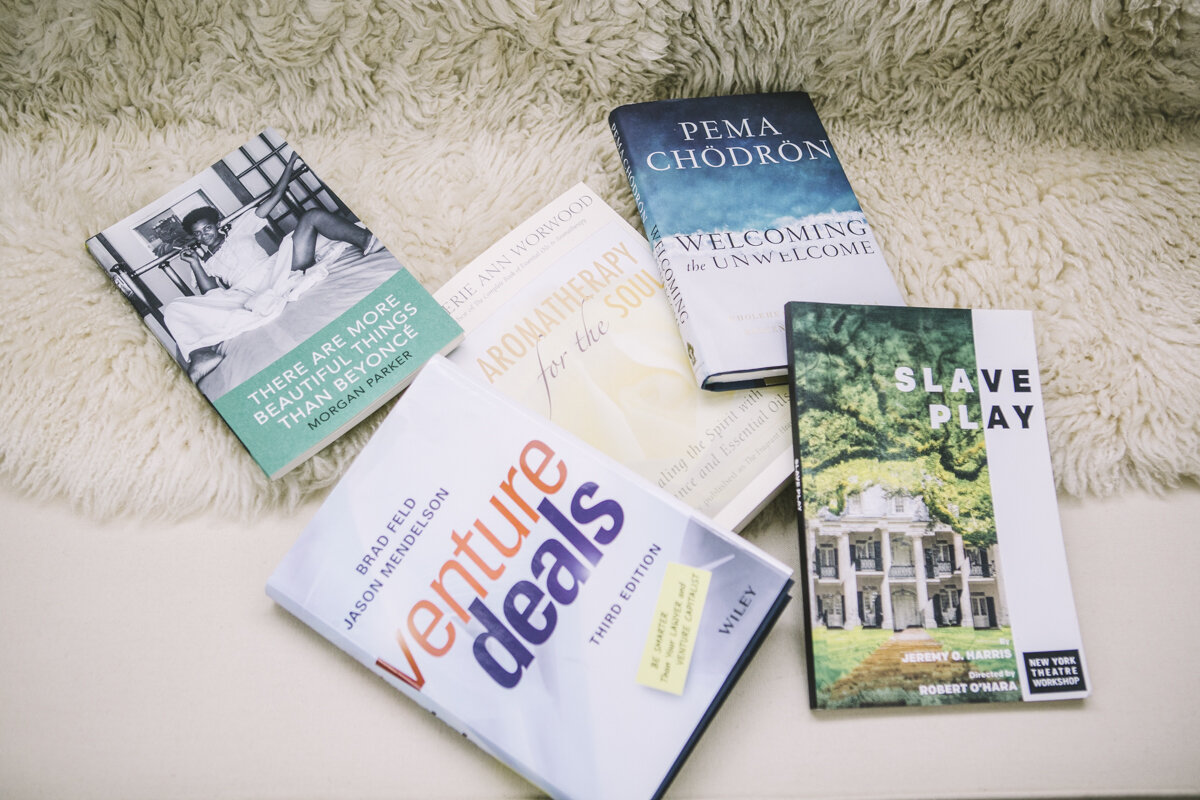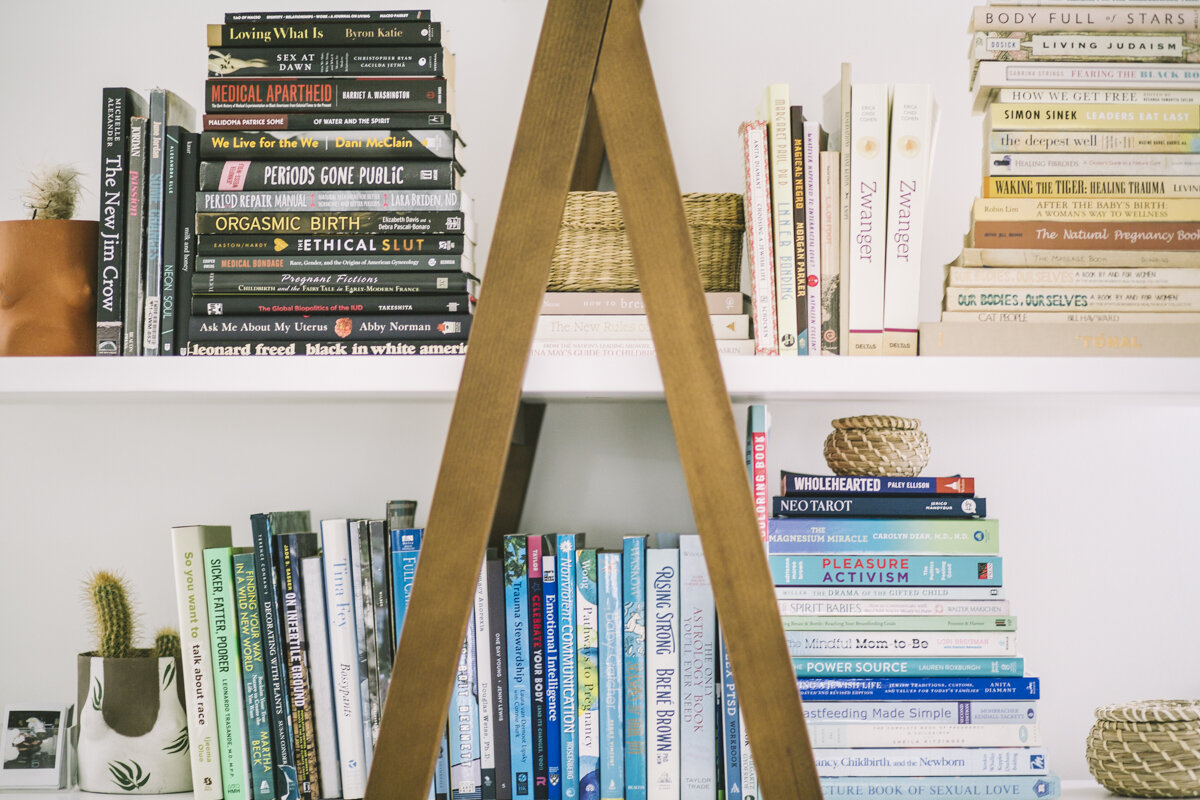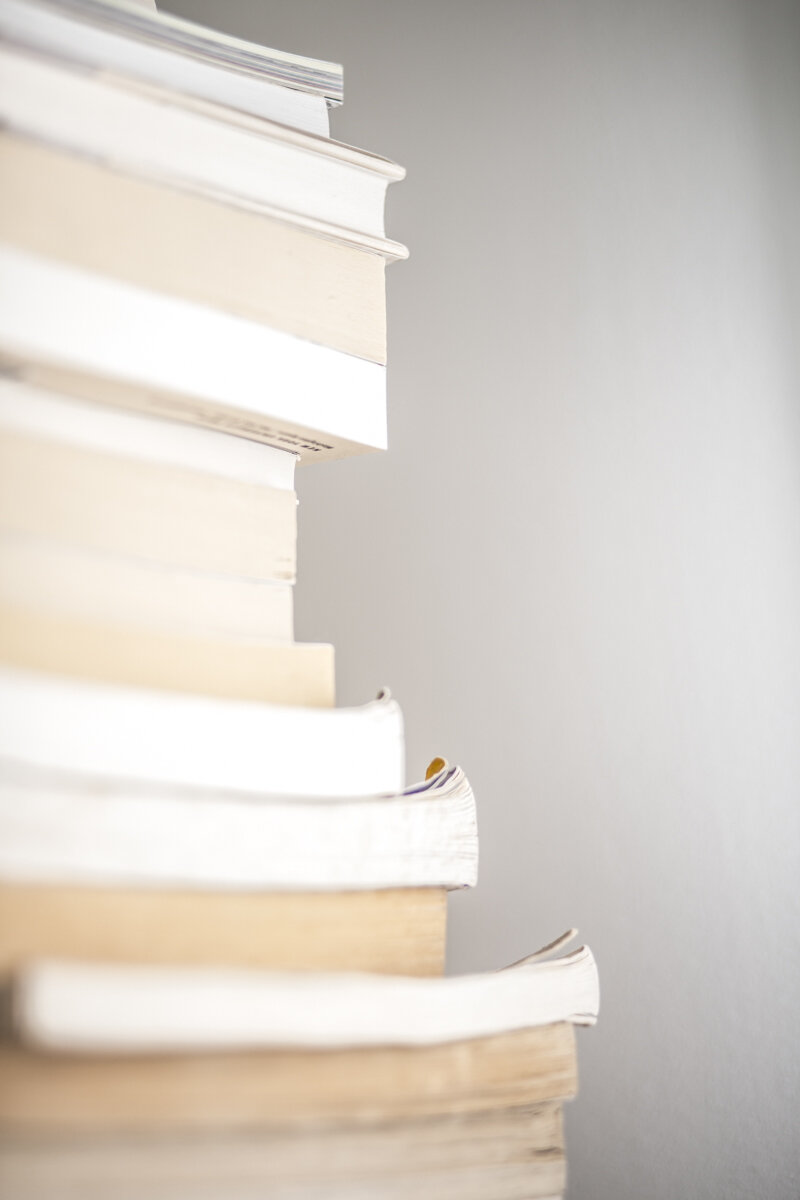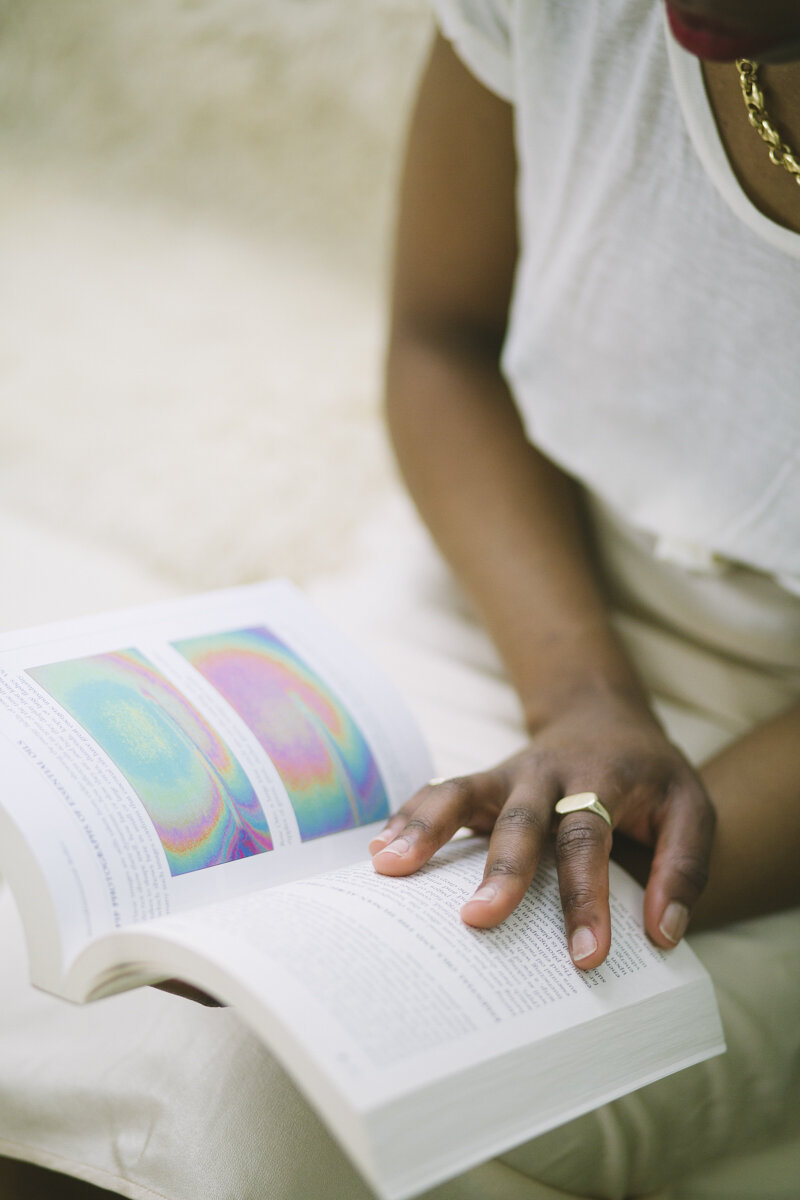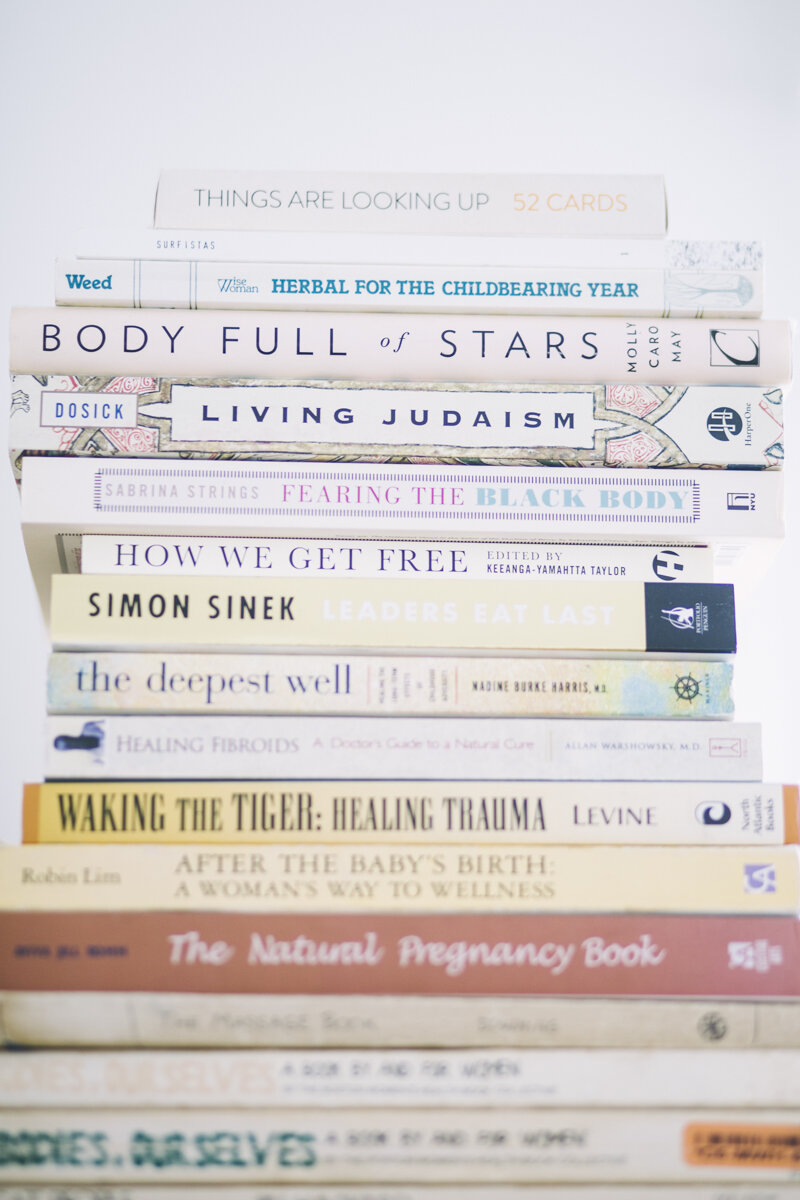
Erica Chidi Cohen
Erica Chidi Cohen is the co-founder and CEO of LOOM, an LA-based wellbeing brand empowering women through sexual and reproductive health. Prior to LOOM, Erica served as a doula and health educator for marginalized communities in both San Francisco and Los Angeles. She is also the author of Nurture: A Modern Guide to Pregnancy, Birth, Early Motherhood– and Trusting Yourself and Your Body, a helpful guidebook offering women support and clear, useful information throughout the entire experience of becoming a mother. Erica lives in Los Angeles, California.
Photography by Lauren Pisano
GAL: We’re currently living through the beginning stages of what appears to be a pandemic. How are you feeling?
Erica Chidi Cohen: I feel more regulated right now than most might and it’s only because both of my parents are clinicians. My dad is an infectious disease specialist, and my mom is a nurse, so I grew up with an understanding of herd immunity and a healthy fear of disease and pandemics. At the same time, I still feel scared. I feel exhausted. I feel helpless. But then, simultaneously, I feel inspired and loving and connected. I am trying to encourage myself to hold all of those different feelings at the same time, along with having compassionate expectations for myself right now. Case in point, today felt like a super productive day, and I can feel the acclimation helping with my ability to be productive. However, yesterday, I woke up at 11:00 and was up for about two hours and then went back to sleep till 5:00. There is so much overwhelm psychologically. My body's desire to sleep really is in an effort to heal. I'm allowing myself to take naps, and know that the naps have a curative component to them if I let myself lean into them.
GAL: Since your work revolves taking care of and educating women about dealing with the experience of pregnancy where, in many respects, nobody has complete control over their body and its functionality, do you feel like you're more equipped to deal with uncertainty in general?
ECC: Yeah. Well, I would say I'm the kind of person that's built for crisis, and so as a result, I'm finding I'm still very much locked down by this time, but I feel I'm much more
comfortable leaning into some of the tools that helped this time be easier, such as taking naps and having to go a little bit slower, knowing that that's only going to help me be able to speed up and have an edge, which is very similar to doula work. You just kind of have to always be ready, and there was always a lot of uncertainty built into that job. So I think I'm just leaning into an old skill set that I have.
GAL: Can you please tell us a little bit about LOOM?
ECC: The mission of LOOM is to end the knowledge gap for women around sexual and reproductive health. We opened back in 2017, providing group education and events around everything from periods, to pregnancy, and the postpartum shift, along with sexual empowerment. I think our brand, not so much the physical space, but the brand itself is so important for women and for people, primarily because so many of us exist in a knowledge deficit around our own bodies, let alone our sexual and reproductive health. Health education and personal growth around how we experience our bodies is a healthcare intervention and a way to improve the consciousness of our society as a whole.
GAL: Is LOOM closed at the moment?
ECC: Yes. We kicked off social distancing on March 12th. Given my personal background, I felt more comfortable just pulling the plug. We’ve moved our offerings to the digital sphere, and are currently preparing to really optimize on that in the coming months.
photo by: Lauren Pisano
“I wanted to write a book that helped build up women”
GAL: Why did you decide to write your book?
ECC: It was a reactive decision. Back in 2015, Lorena Jones an incredible editor previously at Chronicle cold emailed me and shared that she was enjoying the content that I was creating on Instagram and wanted to know if I would be interested in writing a book. It was a total shock and I remember reading her email multiple times before replying. Chronicle was a publisher that I had followed for ages and I enjoyed many of the books they published and in the end I signed with them. Writing a book wasn't something I had thought out, although I do have a writing background, enjoy writing and majored in media, writing and communications in college.
GAL: What did you hope that writing your book would achieve?
ECC: I wanted to write a book that helped build up women with balanced research, holistic approaches and self-care. As a doula at the time, I felt that the pregnancy and postpartum literary space was fairly antiquated, and didn't really have a modern voice that provided optionality. Also as a queer person, I felt that all the books referred to the birthing person or mother's companion as her husband, which I felt was, again, very outdated. I wanted move the narrative of pregnancy and birth to a soften place by smashing the birthing hierarchy and pushing back on the terminology of natural birth by expose how divisive it is and modeling neutral language, like cesarean birth, vaginal birth, medicated birth and unmedicated birth.
GAL: You identify as queer. How did you awaken to that realization?
ECC: It’s something I’ve known most of my life but over the last few years our culture has expanded how to talk sexuality and there is more queer visibility, so it was less of a realization and more of a sense of safety and community that helped me feel more comfortable with coming out publicly in 2018.
GAL: What was the first book you fell in love with that turned you into a lifelong reader?
ECC: You're going to laugh, but I love The Stinky Cheese Man and Other Fairy Tales. I don't know if you ever read that book growing up but it’s so good. I also loved the Mr. Men and Little Miss series, and then the Berenstain Bears. I had the full Bears collection. I also had the full Childcraft Encyclopedia, and was obsessed with the Make and Do section. I read voraciously as a child.
“There’s so much uncertainty, and the fact is that uncertainty has always been there.”
GAL: I suppose these choices jive with your love for The Stinky Cheese Man. If I remember correctly, he’s sort of a charming, ne'er do well mischief maker. Right? As for The Berenstain Bears, they do get into a lot of bad behavior, but perhaps the connection is problem solving more so than outlandish activities. Do you think they’re connected?
ECC: Yeah, they do. It's actually funny. I've never thought of it that way. I think a part of my mom’s selection of books for me was to help reform my hyperactive off-the-wall behavior. I remember reading The Berenstain Bears And The Messy Room. many times. I think my mom was definitely trying to send me a message. [Laughs]
GAL: How did you discover the books you read when you were little?
ECC: My house was very book oriented and my mom bought me a lot of books. My first volunteer job, believe it or not, was at a library when I was eight years old. It was a summer program where you could be a junior librarian. I would spend two days of the week at the library for two or three hours, and help sort books and that kind of thing. I was a really early reader. I think the first bigger book I ever read, maybe at nine years old was Patricia Cornwell's book Potter's Field. It was really weird but I loved that book. Also Patricia Cornwell is a lesbian now, which makes so much sense. I find that a lot of the stuff that I liked as a child, were written by queer people.
GAL: What is the power of fiction? Can you describe some ways in which fictional narratives have impacted you in your life?
ECC: Fiction helps you escape, lets you be somewhere else. Fictional narratives were very supportive for me as a child. Just recently I was saying to a dear friend how much I want to re-purchase all of those books now to connect with that part of myself that read those book. They expanded my mind in such a deep way. I would say I read more or less fiction now. I would say the most fiction I read is poetry. I prefer nonfiction reads, obviously given the work I do. However, fiction has this ability to connect us to an expansive part of ourselves.
GAL: I know it's a little hard, as we can’t leave our homes right now, but how are you finding inspiration during this time?
ECC: There's so much uncertainty, and the fact is that uncertainty has always been there. What’s inspiring me is that for the first time in a very long time, we're being forced to actually deal with reality and the loss of control. There's a unique opportunity before us to rebuild, even with the pain of what this time is unearthing.
GAL: Who's your favorite author? Or if you have several, please feel free to name them.
ECC: June Jordan’s poetry for sure. I also love Toni Morrison. I love Pema Chodron. I read anything that she's coming out with. I really like Anita Diamant. She’s great. She writes a lot of Jewish literature. I converted when I got married, and so I really kind of dove in to her work. Women Who Run to the Wolves by Clarissa Pinkola Estés is a seminal text for me. I think Peter Levine is amazing too. He wrote a book called Waking the Tiger about human trauma and somatic experiencing that is excellent.
GAL: We have a friend who has sanity shelf dedicated to books she returns to again and again, to reread for pleasure, knowledge and solace. What books would be on your sanity shelf?
ECC: Women Who Run With the Wolves would be on my sanity shelf along with Wholehearted by Paley Ellison, too, which is all about slowing down and connecting to essential Dharma principles. I’m a huge fan of The Secret Language of Birthdays book. It's always weirdly accurate and I’ve had my copy since high school. I also love any book by Judy Hall, the Crystal Bible book, and her Crystal Prescription are dear to me along with my crystals. Also I love Kundalini Yoga and Guru Jagat’s book Invincible Living book is one I turn to often along with The Pocket Pema Chodron.
GAL: What are you reading right now?
ECC: I typically read a couple of different things the same time, dipping in and out. Right now, I’m making my way through Magical Negro by Morgan Parker and Harvard Business Review’s On Emotional Intelligence along with Astrology for Real Relationships. by dear friend Jessica Lanyadoo. I've been into astrology since I was a little girl. My mom had my natal chart read when I was at two weeks old and had it recorded on a cassette tape. I've also been reading Aromatherapy for the Soul, essential oils have been apart of my self care since high school and I love continuing to build on my aromatherapy knowledge. Lastly, I just finished reading Slave Play by Jeremy O. Harris. He sent me a copy of the script last year when it was still off broadway and I tucked it away until I had the chance to see the play last fall, it’s an profoundly moving read.
GAL: Please list your favorite books about women's health that you think everyone should read.
ECC: Come as You Are by my friend Emily Nagoski. Herbal Healing for Women by Rosemary Gladstar. Heart and Hands by Elizabeth Davis is a holistic read around pregnancy and birth. Our Bodies, Ourselves a vintage tome developed by the Boston women's health team. On Infertile Ground by Jade Sasser, it's a book about population control, and women's rights, and climate change and the Period Repair Manual by Lara Briden.
GAL: Please name three books that you recommend to every GAL reader and the reason for your choices.
ECC: When Breath Becomes Air It’s profoundly moving. It's just such a beautiful description of being so close to death. A true reminder of the meaning of life, it really always kind of sticks with me.
Women Who Run With the Wolves is a wonderful reference guide.
Reproductive Justice: An Introduction it unpacks the history of the movement, how it’s very different from reproductive rights movement and the racial inequities black women and women from marginalized communities continue to experience around sexual and reproductive health.
Featured Books
More Like This







